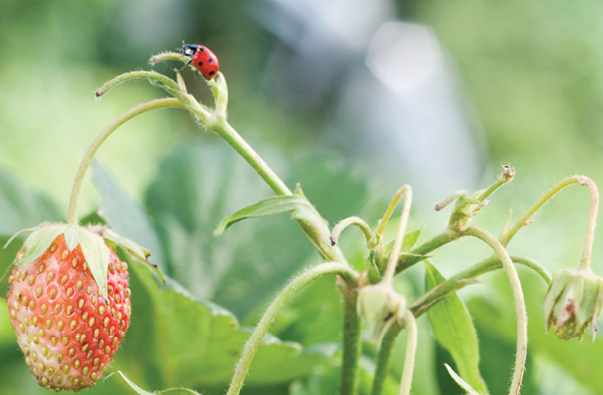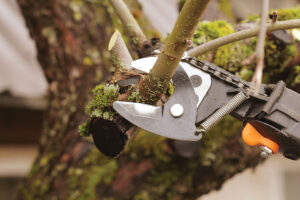 Many gardeners may see an insect in their garden and immediately suspect the worst – that insect will eat holes in their leaves and produce or stress their plants by sucking out the plant juices. All those things can certainly happen, but luckily nature has a solution – beneficial insects.
Many gardeners may see an insect in their garden and immediately suspect the worst – that insect will eat holes in their leaves and produce or stress their plants by sucking out the plant juices. All those things can certainly happen, but luckily nature has a solution – beneficial insects.
Beneficial insects are naturally-occurring insects that help control garden pests, whether by eating it, eating the pest’s eggs, or parasitizing it. Ladybird beetles, for example, are a great beneficial insect to have in the garden because both the larvae and adults feed on soft-bodied pests, like aphids, and help control an infestation in the garden.
There are also various parasitic wasps or parisitoids that lay their eggs inside pests like aphids or tomato hornworms. The larvae develop inside the pest, essentially killing it from the inside out.
How can you attract these naturally-occurring beneficials to your garden? Beneficial insects like to have a diverse selection of things to feed from, so start off by planting a variety of fruits, vegetables and flowers. Don’t simply plant the garden in rows. Instead, try interplanting your fruits and vegetables with flowers throughout the garden.
Parasitoids need to feed on nectar, honeydew and pollen and prefer to feed from plants with small flowers. Sweet alyssum, members of the carrot family such as Queen Anne’s lace, members of the brassica family like broccoli, and herbs like dill, fennel and coriander are all great plants with small flowers. Plants in the aster family, such as cosmos, are great as well.
You may also consider planting marigolds or pepper plants around the garden to serve as trap crops. These plants attract garden pests away from your other desired plants. The infested marigolds and pepper plants can then be removed, treated with pesticides or kept in the garden to maintain pest populations for beneficial insects to feed from.
Reducing the use of chemical pesticides in the garden is also essential. Most pesticides that kill your garden pests are also going to kill your beneficial insects and may leave a residual that lasts the rest of the season.
With simple planning early in the season, of what to plant in the garden and changes in practice, gardeners can take a step toward naturally controlling the pests in their gardens.
For more information about beneficial insects and identifying a pest in your garden, contact the Extension Master Gardener Volunteers at your local Extension office: web.extension.illinois.edu/mg/








